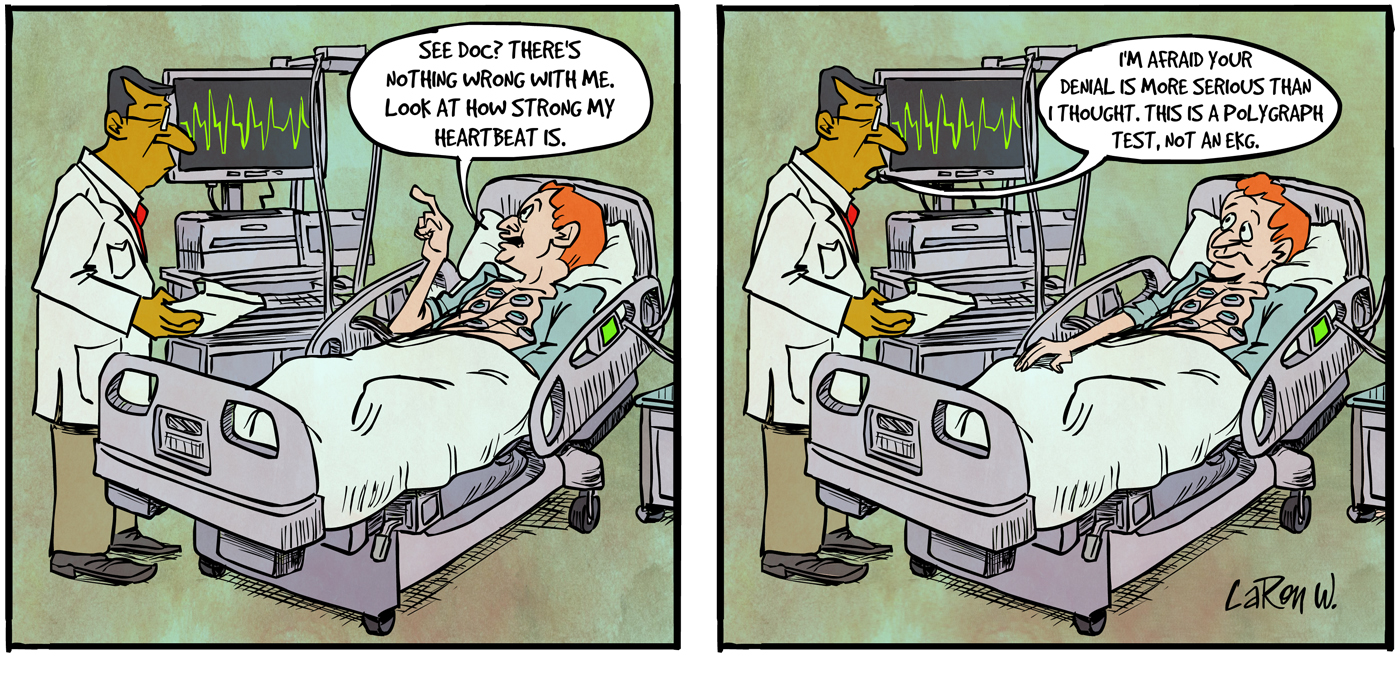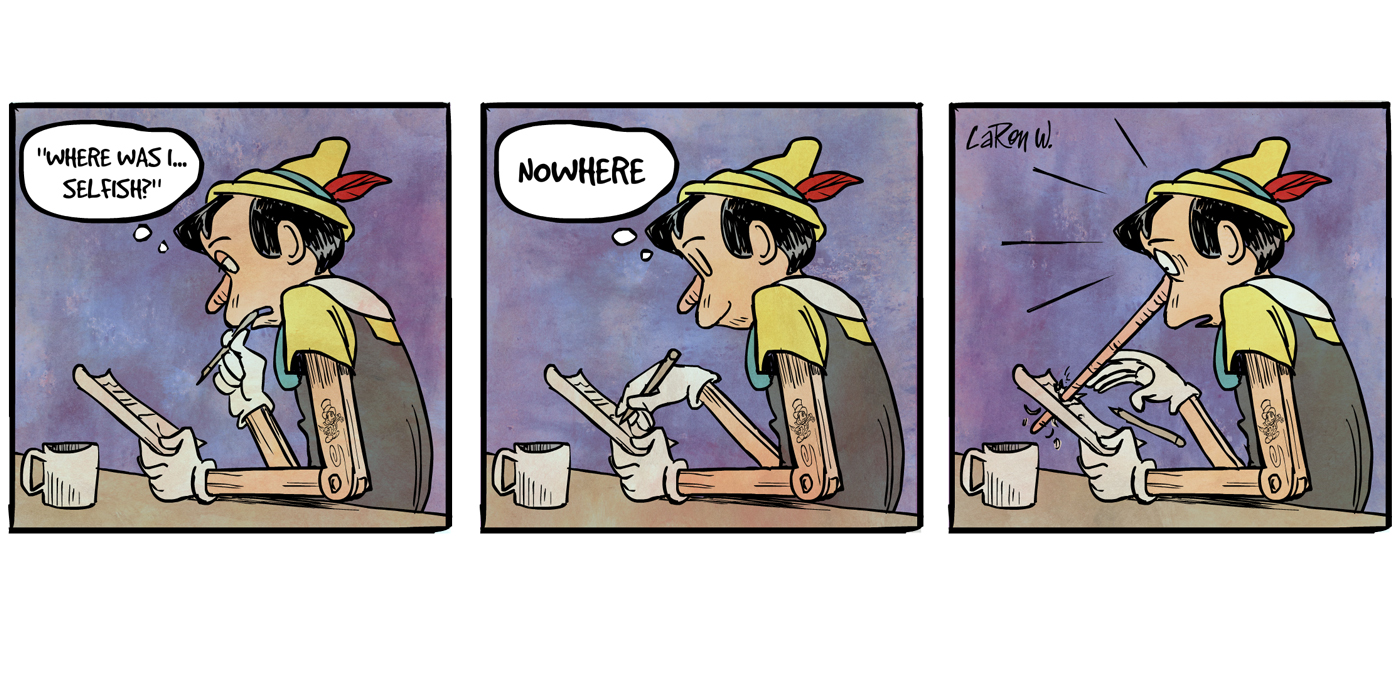Recently my sponsor in another 12-Step program pointed out a sentence in the Big Book that I hadn’t paid special attention to before. It comes in Chapter 11, A Vision For You. The reading has to do, in part, with events surrounding a business trip by Bill W., the co-founder of AA, when he was just six months sober. We learn that the business wasn’t a success. When it was over, Bill found himself far from home, in an unfamiliar city, “discredited and almost broke,” and worst of all, close to taking a drink. Gripped with fear, he paced the lobby of his hotel, torn between a voice of conscience telling him to reach out to a fellow alcoholic and an almost overwhelming urge to try a little controlled drinking in the hotel bar.
In his crisis, Bill’s thoughts turned to his responsibilities to his family and especially to the unknown alcoholics who would die if he didn’t try to carry the message of his recovery to them. Then came the key sentence: “His sanity returned and he thanked God.” Immediately Bill got on the phone, looking for another alcoholic who wanted recovery.
That sentence is worth emphasizing: “His sanity returned and he thanked God.” As is clear from the reading, Bill didn’t reach out in desperation, and it wasn’t the activity of making calls that kept him out of the bar. By the time he picked up the phone, his sanity had returned. When he reached people who were sympathetic to his predicament, Bill was lucid, carrying a spiritual message and detached from the results. The person on the other end of the line wasn’t the source of Bill’s sanity, God was. This is also evidenced by the fact that Bill made up to ten calls before he reached the person who put him in contact with Dr. Bob. Bill was simply doing the next right thing, as he saw it, leaving the results to God.
Not only did this turning point save Bill’s life, we know from AA history that this also was the beginning of a series of events that led to his meeting with Dr. Bob and the eventual establishment of the AA fellowship.
This is something that I, a sexaholic, would do well to bear in mind, especially when I make calls to fellow SA members or encourage others to call me. As members of a fellowship whose primary addiction is living inside our heads, we correctly put a lot of emphasis on staying in touch with others through phone calls, meetings and get-togethers. But I know from experience that these activities alone don’t keep me sane, or even sober.
However, if I really believe I’m making the real Connection, primarily through my practice of Step Three (i.e., surrender to my Higher Power), then the calls I make don’t have to be made in desperation, but in a spirit of quiet confidence and true sharing. I also don’t have to worry unduly about fixing someone who happens to call me when he is disturbed. I can be grateful for the fellowship while being aware that the sanity of another doesn’t depend on the feedback I give or can’t give.
Bill’s experience prompts the question: Am I willing to allow God to be my constant companion and refuge, or do I still regard him as the “bush-league pinch hitter” the literature talks about (12&12 75), “to be called upon only in an emergency”? Do I expect the calls themselves to save my sanity? Do I make calls as a substitute for making the real Connection? God works through people, certainly, but if Bill’s story tells me anything, it’s that when I find myself disturbed, I can reach out in confidence to God before I pick up the phone and share with a fellow member, because: “… there is One who has all power …”
Lawrence M., VA






